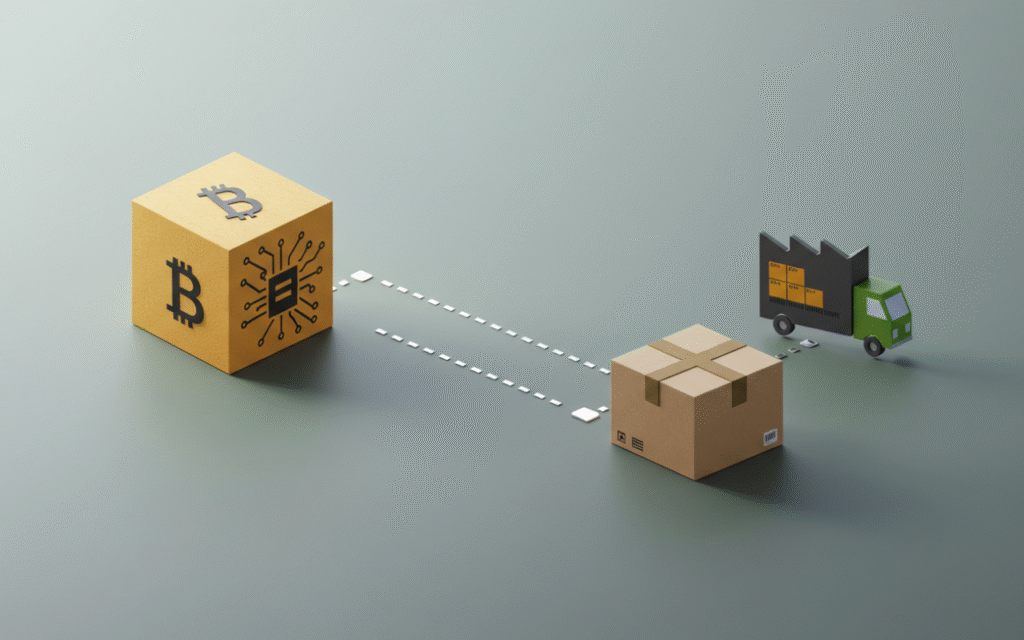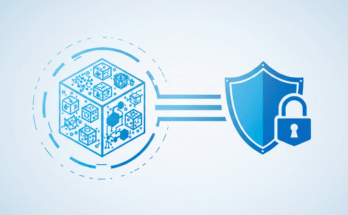In recent years, blockchain technology has emerged as a game-changer across various industries, and supply chain management is no exception. While blockchain is often associated with cryptocurrencies like Bitcoin, its potential extends far beyond digital currencies. This innovative technology is poised to transform the way goods and services are tracked, verified, and delivered, offering unprecedented levels of transparency, efficiency, and trust. So, let’s dive into what the future holds for blockchain in supply chain management and why it’s such an exciting development.

What is Blockchain, and Why Does It Matter for Supply Chains?
At its core, blockchain is a decentralized digital ledger that records transactions in a secure, transparent, and immutable way. Unlike traditional databases, blockchain operates on a distributed network, meaning no single entity has complete control. This makes it incredibly secure and resistant to tampering.
In supply chain management, this technology can be used to create a permanent record of every step in the production and delivery process. From sourcing raw materials to delivering the final product to a customer, blockchain ensures that every transaction is recorded and verified. This level of visibility is crucial for building trust between suppliers, manufacturers, retailers, and consumers.
Tackling Supply Chain Challenges with Blockchain
Supply chains are often complex, involving multiple stakeholders across different locations. This complexity can lead to inefficiencies, fraud, and a lack of accountability. Blockchain has the potential to address many of these challenges:
- Enhanced Transparency: Imagine being able to track the journey of your coffee beans from the farm to your cup or knowing exactly where your favorite brand sources its materials. Blockchain makes this possible by providing a tamper-proof record of every transaction. Consumers can make more informed choices, and companies can ensure ethical sourcing.
- Improved Efficiency: Traditional supply chains often rely on paper-based processes that are slow and prone to errors. With blockchain, all parties can access real-time data on a shared platform, reducing delays and streamlining operations.
- Fraud Prevention: Counterfeit goods are a major issue in industries like pharmaceuticals and luxury goods. Blockchain’s ability to verify the authenticity of products can help eliminate fakes from the market.
- Better Risk Management: With greater visibility into the supply chain, businesses can quickly identify and address potential risks, such as delays or disruptions caused by natural disasters or geopolitical events.
Real-World Applications of Blockchain in Supply Chains
→ Several companies are already leveraging blockchain technology to revolutionize their supply chains. For instance:
- Walmart has partnered with IBM to use blockchain for tracking food products. This allows them to quickly identify the source of contamination in case of foodborne illnesses, reducing the time it takes to respond from days to mere seconds.
- De Beers, the diamond company, uses blockchain to track diamonds from mine to market. This ensures that their products are conflict-free and ethically sourced.
- Maersk, the global shipping giant, has developed a blockchain-based platform called TradeLens to streamline international shipping processes and reduce paperwork.
These examples highlight how blockchain is already making a tangible impact on supply chain management.
[The Road Ahead] What’s Next for Blockchain in Supply Chains?
While the potential benefits of blockchain are clear, there are still challenges to overcome before it becomes a standard in supply chain management. Issues like scalability, high implementation costs, and the need for industry-wide collaboration must be addressed.
However, as technology evolves and more businesses recognize its value, we can expect to see broader adoption of blockchain in supply chains. Future advancements may include integration with other technologies like artificial intelligence (AI) and the Internet of Things (IoT), creating even smarter and more efficient systems.
For example, IoT devices could automatically record data on the blockchain as goods move through the supply chain, while AI could analyze this data to optimize routes or predict demand patterns. These innovations could take supply chain management to an entirely new level.
A Win-Win for Businesses and Consumers
Ultimately, the adoption of blockchain in supply chain management benefits everyone involved. Businesses gain greater efficiency, lower costs, and reduced risks, while consumers enjoy increased transparency and confidence in the products they purchase. It’s a win-win scenario that has the potential to reshape industries worldwide.
As we look to the future, one thing is clear, blockchain is not just a buzzword. It’s a powerful tool that’s here to stay. By embracing this technology, companies can build more sustainable and trustworthy supply chains that meet the demands of today’s increasingly conscious consumers.
So next time you enjoy your morning coffee or shop for your favorite products, take a moment to appreciate how technologies like blockchain might be working behind the scenes to make it all possible. The future is bright and it’s built on blockchain.



![[Tesla Stock vs. Bitcoin] Which One Leads the Market in 2025?](https://mineatech.com/wp-content/uploads/2025/06/tesla-stock-vs-bitcoin-which-one-leads-the-market-in-2025-348x215.png)